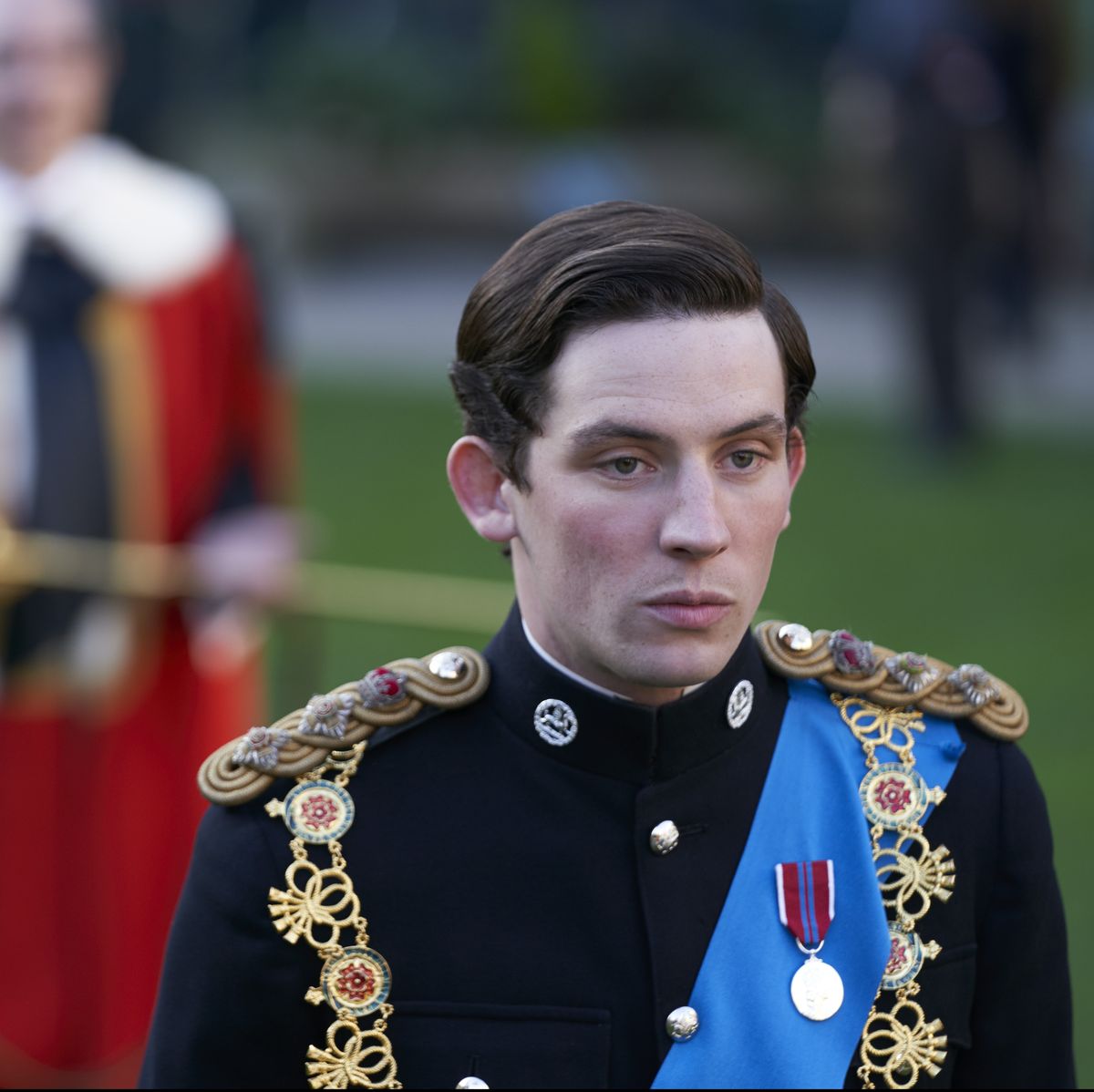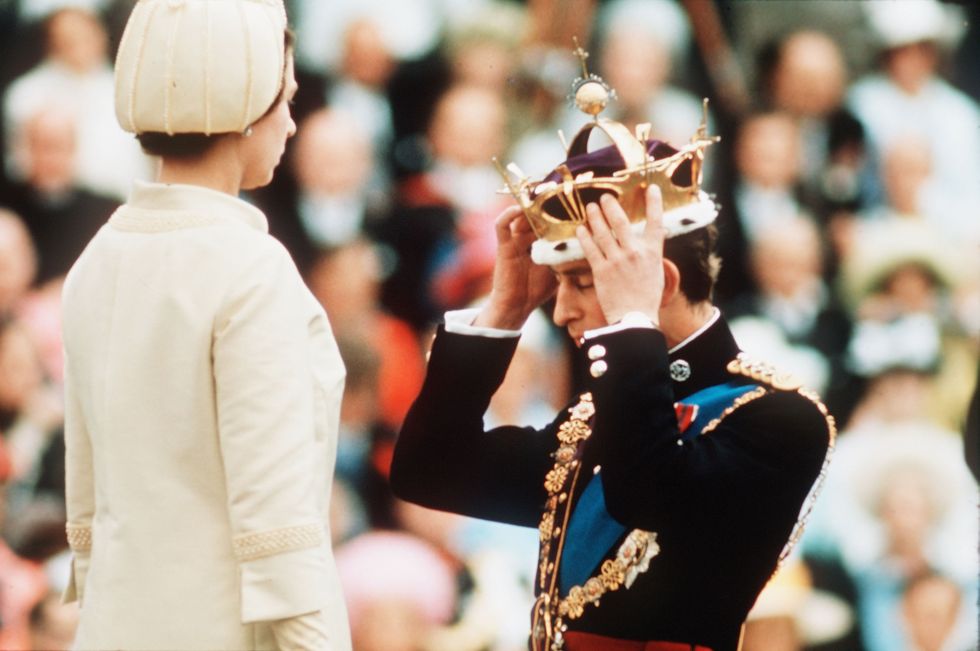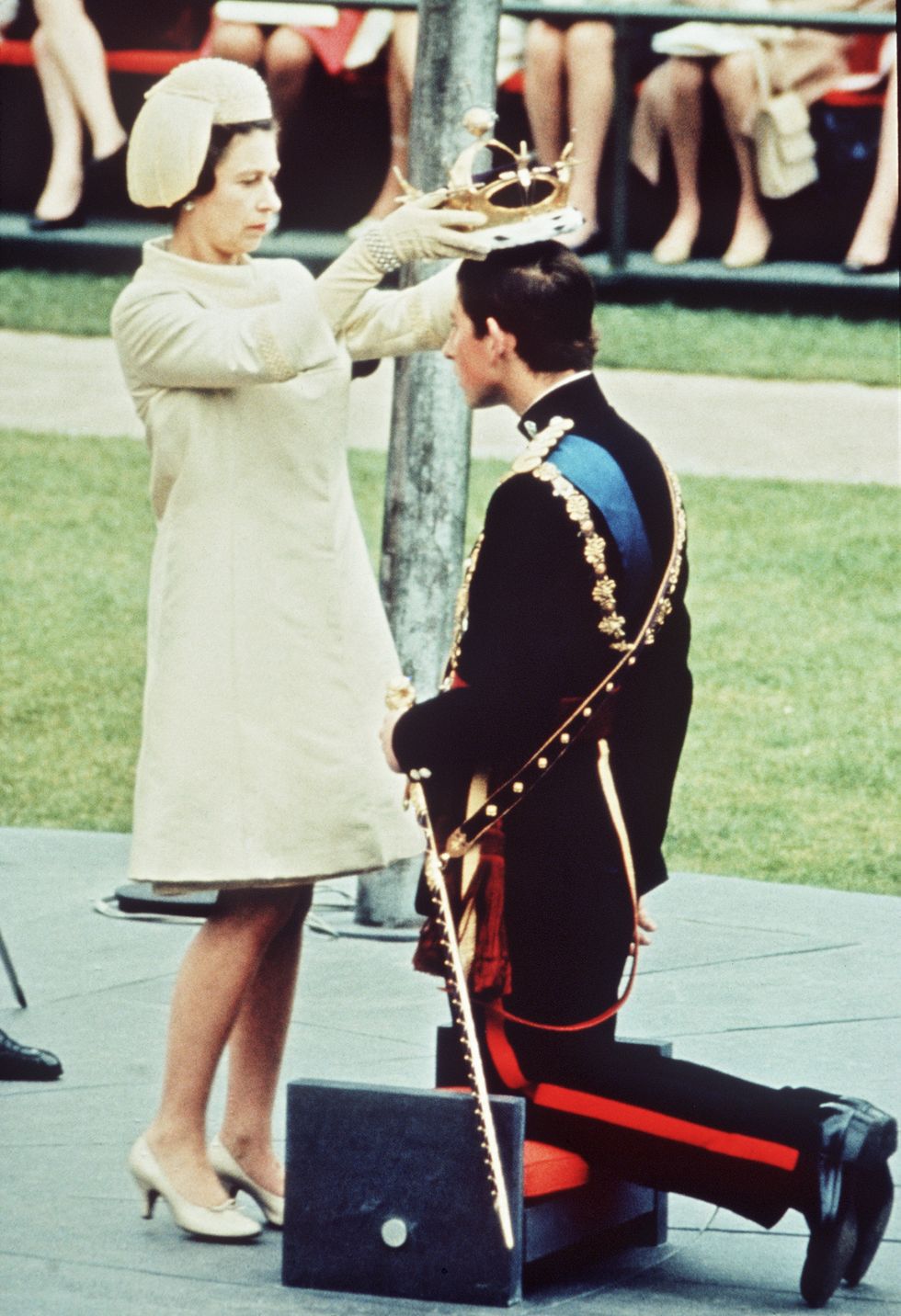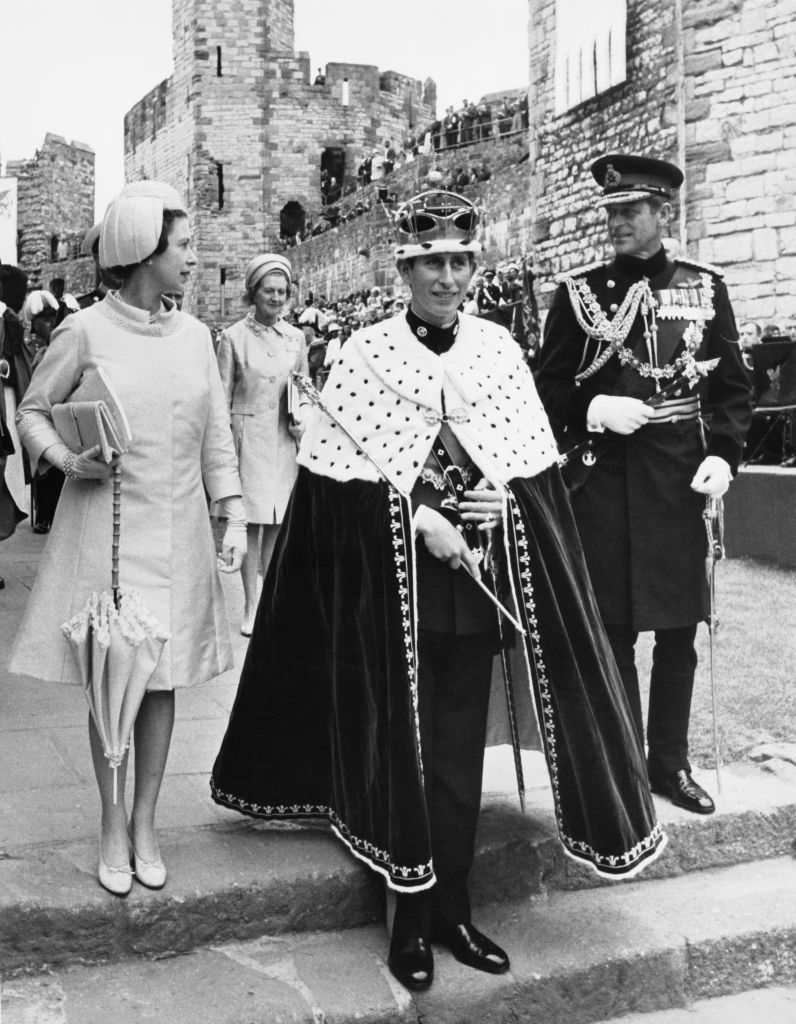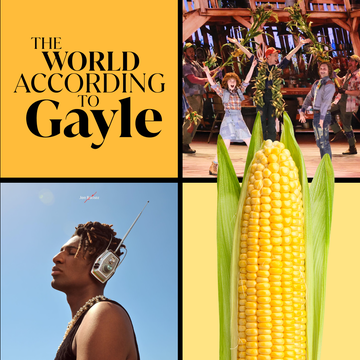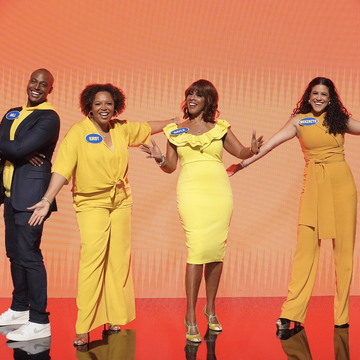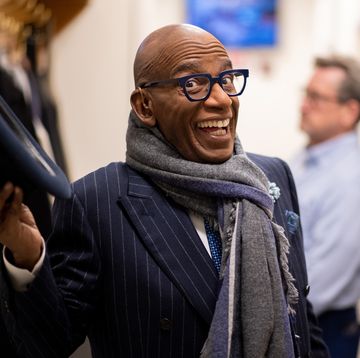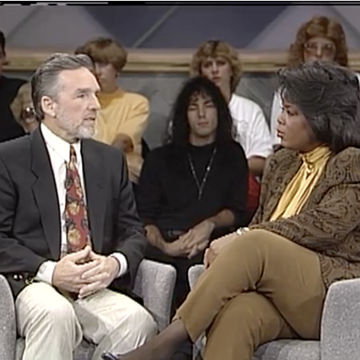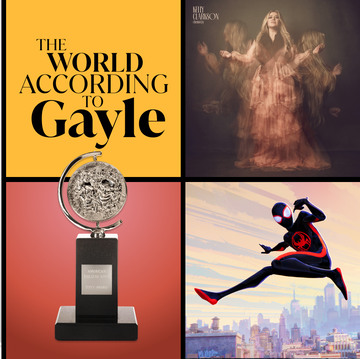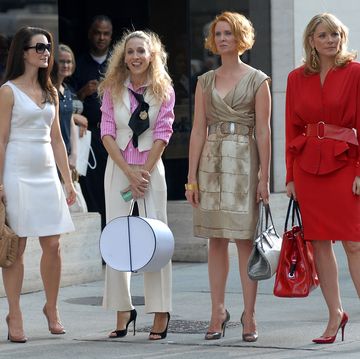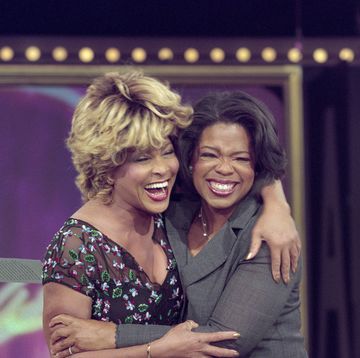- The third season of The Crown premiered on Netflix on November 17.
- Now a young man, Prince Charles (Josh O'Connor) is a main character on the show.
- Before becoming Prince of Wales, Charles lives in Wales for two months to learn the language.
For an insecure person, much of life is spent shushing that little, internal voice convinced everyone actually hates you. The key is to remember those thoughts are the product of anxiety. People don’t actually hate you.
Unless, of course, you’re 20-year-old Prince Charles studying at Wales’s Aberystwyth College in 1969. In that case, everyone really does hate you—and they’re not afraid to be expressive with their disdain. "Every day I had to go down to the town where I went to these lectures, and most days there seemed to be a demonstration going on against me," Charles recalled in an ITV documentary years after his two-months stay in Wales.
At the time, Charles, the eldest child of Queen Elizabeth and Prince Philip, was poised to assume a more official royal title of his own. But before Charles could be crowned Prince of Wales, he was pulled out of Cambridge University and sent to study at Aberystwyth University for a semester, per a suggestion by the new Labor Prime Minister, Harold Wilson.
More From Oprah Daily

In Wilson's mind, Charles’s investiture speech would be an opportunity to show Wales respect in a moment when anti-English sentiment was especially high. For Welsh nationalists, investitures (an event in which the queen presents recipients with an honor) were a symbol of England's long history of stifling the Welsh people. Ideally, Charles's speech would act as an outstretched hand.
So, before becoming Prince of Wales, Charles had to learn what it meant to be Welsh. After nine weeks of studying, Charles was supposed to give the investiture speech in the Welsh language.
Much of the sixth episode in The Crown’s third season, which is titled “Tywysog Cymru” (or “The Prince of Wales” in Welsh), focuses on the intellectual sparring between the privileged, naïve Charles and his Welsh tutor, Dr. Edward "Tedi" Millward (actor Mark Lewis Jones and real-life Welsh politician), a vocal anti-royalist. For the first time in The Crown, Charles is confronted with someone who shows an open disdain for the basis of his entire existence—and it changes him forever.
In The Crown, the opposing men end up surprising one another. After some initial fumbling, Charles takes his task seriously. Not only does Charles give a speech in seamless Welsh—he surreptitiously embeds pro-Welsh sentiment into his speech, which he knows his family won’t understand. Charles compares the voicelessness of the Welsh people in the broader U.K. context to his own inability to steer his fate in the face of royal “dyuty” (say it like a Queen Elizabeth).
It’s certainly a cinematic moment, and one that furthers Charles's characterization as a tortured, sympathetic softie. But is that how the speech went down in real life?
Actually, yeah. It totally is.
In an interview with The Guardian in 2015, the real Millward confirms the initial “odd couple” vibe about his relationship with Charles. “The early '60s was the start of an upsurge in Welsh nationalism,” Millward explained. "By that point I was a well-known nationalist, so I was a little surprised when the university asked me if I would teach Welsh to Prince Charles for a term.”
Millward was a natural choice, though. In 1962, Millward co-founded a society for the preservation of the Welsh language. Keeping Welsh alive was his life’s mission.
As in the show, the real Millward was impressed by Charles’s studiousness. “He had a one-on-one tutorial with me once a week. He was eager, and did a lot of talking. By the end, his accent was quite good."
On July 1, 1969, Charles indeed delivered a speech in Welsh (and Josh O’Connor, who plays Charles in the show, also memorized quite a bit of the difficult language for the scene). Unfortunately for those of us who live for drama, Charles’s real speech wasn’t as revolutionary as the one seen in The Crown.
The Welsh portion of his speech reads as follows.
"The words of your address have certainly touched me deeply and I can assure you I have taken note of the hopes expressed in them. It is, indeed, my firm intention to associate myself in word and deed with as much of the life of the Principality as possible—and what a Principality!
It is with a certain sense of pride and emotion that I have received these symbols of office, here in this magnificent fortress, where no one could fail to be stirred by its atmosphere of time-worn grandeur, nor where I myself could be unaware of the long history of Wales in its determination to remain individual and to guard its own particular heritage. A heritage that dates back into the mists of ancient British history, that has produced many brave men, Princes, poets, bards, scholars and more recently, great singers, a very memorable 'goon' and eminent film stars. All these people have been inspired in some way by this heritage.”
Admittedly, the real speech is not quite as straightforward in its pro-Welsh sentiment as Charles’s speech in The Crown, which goes: “Wales has a history to be proud of, and it is completely understandable that the Welsh wish to hold on to their heritage, their native culture, their identity, their disposition, and their personality as a nation. It is important we respect that. Wales has her own identity…her own voice.”
Even if it was more subdued, the real speech had a similarly daring sentiment. According to Cabinet papers that were released in 2000, people in Parliament were concerned about Charles’s speech. George Thomas, Welsh Secretary between 1968 and 1970, told Wilson he feared Charles’s speech “boosted Welsh nationalism.”
Well, royals rebel as they can.
This jaunt in Wales isn’t the first time Charles is forced to submit to the crown's calling, or the desires of his family—and as later episodes in the season shows, it won’t be the last. But as opposed to his scarring childhood experience at Gordonstoun Boarding School, or his thwarted romance with Camilla Shand, Charles’s time in Wales is actually, well, positive.
The 20-year-old royal swallows uncomfortable revelations about his family’s place in history, and acts as a bridge between cultures. Now that's a productive study abroad experience.
For more ways to live your best life plus all things Oprah, sign up for our newsletter!
Elena Nicolaou is the former culture editor at Oprah Daily.
